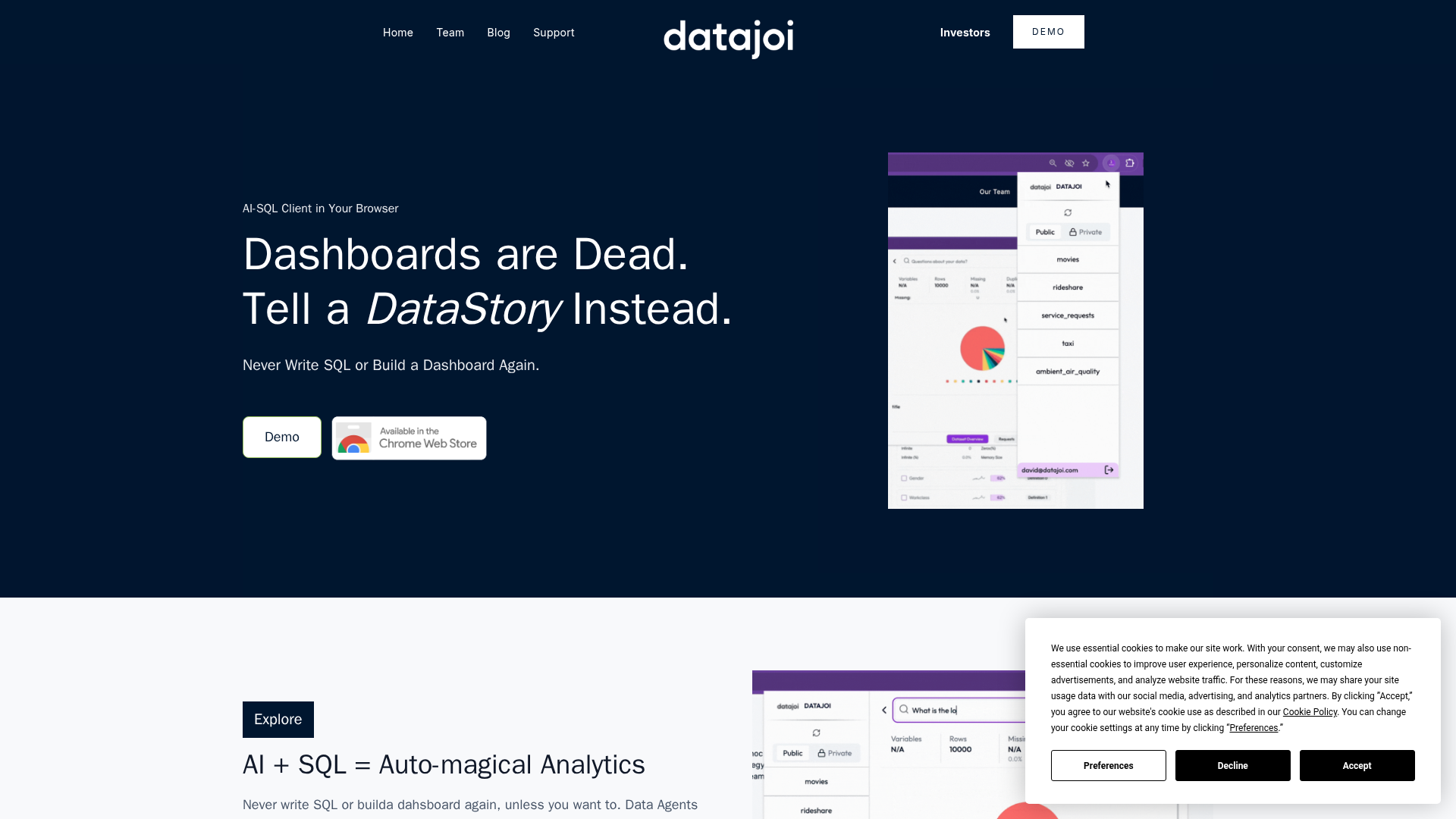Datajoi
| Introduction: | Datajoi is an AI-powered data platform that streamlines data engineering, analytics, and governance for businesses. |
| Recorded in: | 6/4/2025 |
| Links: |

What is Datajoi?
Datajoi is an AI-driven data platform designed to unlock the power of data for modern analytics. It targets businesses and data professionals seeking to streamline data engineering, analytics, and governance. The platform's core value proposition is to empower businesses to build smarter, data-centric solutions by automating complex data tasks, eliminating the need for manual SQL writing or dashboard building. Datajoi leverages 'Data Agents' and 'DataStoryTM' to provide automated dataset quality testing, trusted data pipelines, and cost-effective compute, all while ensuring compliance, performance, and security.
How to use Datajoi
Users interact with Datajoi by asking the AI about the analysis they want, allowing the AI Agent to automate data work, including generating charts and visualizations. Users can then customize and share these outputs with their team. The platform streamlines data management through automated dataset, metric, and query management, and provides end-to-end AI Data Pipelines with built-in tests and monitoring. A free trial is available, and users can sign up or request a demo to get started.
Datajoi's core features
AI-powered Data Agents for automated analytics
Automated dataset quality testing and tracking
Trusted automated data pipelines
AI Data Catalog Librarian for automated chart creation and sharing
Automated dataset, metric, and query management
End-to-end AI Data Pipelines with tests and monitoring
Automated data visualization
"DataStoryTM" for narrative data insights
Built-in compliance, performance, and security
Cost-effective compute for analytics
Use cases of Datajoi
Automating data analysis and report generation using AI.
Streamlining data engineering workflows and pipeline creation.
Ensuring data quality and integrity through automated testing.
Creating and managing a comprehensive AI-powered data catalog.
Generating data visualizations and dashboards automatically.
Sharing data insights and reports effortlessly across teams.
Reducing the need for manual SQL writing and dashboard building.
Achieving cost-effective data compute without complex infrastructure.
Implementing secure and compliant data governance practices.
Empowering business users to ask questions and get insights directly from data.